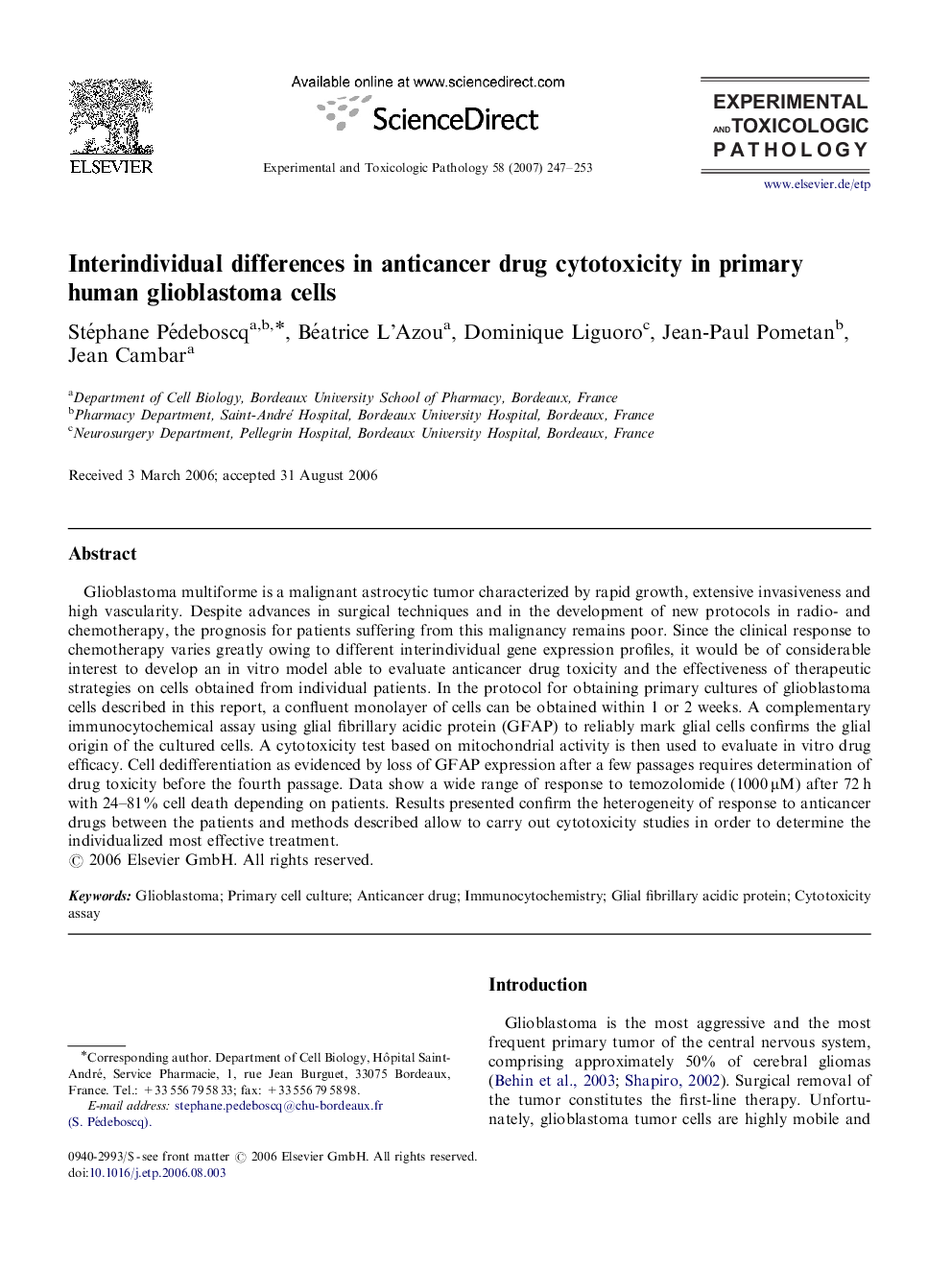| Article ID | Journal | Published Year | Pages | File Type |
|---|---|---|---|---|
| 2499253 | Experimental and Toxicologic Pathology | 2007 | 7 Pages |
Abstract
Glioblastoma multiforme is a malignant astrocytic tumor characterized by rapid growth, extensive invasiveness and high vascularity. Despite advances in surgical techniques and in the development of new protocols in radio- and chemotherapy, the prognosis for patients suffering from this malignancy remains poor. Since the clinical response to chemotherapy varies greatly owing to different interindividual gene expression profiles, it would be of considerable interest to develop an in vitro model able to evaluate anticancer drug toxicity and the effectiveness of therapeutic strategies on cells obtained from individual patients. In the protocol for obtaining primary cultures of glioblastoma cells described in this report, a confluent monolayer of cells can be obtained within 1 or 2 weeks. A complementary immunocytochemical assay using glial fibrillary acidic protein (GFAP) to reliably mark glial cells confirms the glial origin of the cultured cells. A cytotoxicity test based on mitochondrial activity is then used to evaluate in vitro drug efficacy. Cell dedifferentiation as evidenced by loss of GFAP expression after a few passages requires determination of drug toxicity before the fourth passage. Data show a wide range of response to temozolomide (1000 μM) after 72 h with 24-81% cell death depending on patients. Results presented confirm the heterogeneity of response to anticancer drugs between the patients and methods described allow to carry out cytotoxicity studies in order to determine the individualized most effective treatment.
Keywords
Related Topics
Life Sciences
Agricultural and Biological Sciences
Animal Science and Zoology
Authors
Stéphane Pédeboscq, Béatrice L'Azou, Dominique Liguoro, Jean-Paul Pometan, Jean Cambar,
